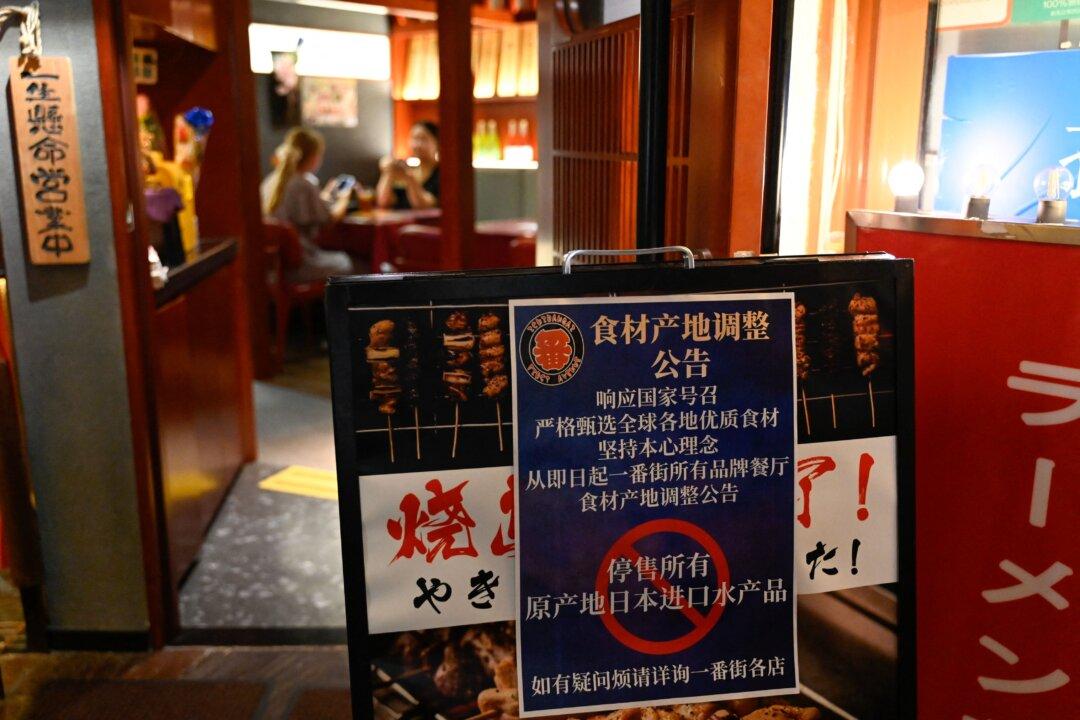Japan has filed a formal complaint with the World Trade Organization (WTO) against China’s ban on Japanese seafood in response to the release of treated wastewater from the wrecked Fukushima nuclear power plant.
China announced a blanket ban on all Japanese aquatic products after Japan began releasing treated radioactive water from the Fukushima power plant on Aug. 24.





